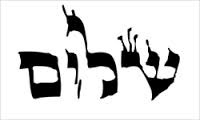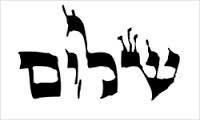This week's Torah portion, Pinchas, is one of the most morally complex in our tradition. Pinchas sees wrongdoing—a public act of defiance during a time of national crisis—and acts without hesitation. He kills an Israelite man, Zimri, and a Midianite woman, Cozbi. The Torah says his act halts a deadly plague. And God responds not only by halting the destruction but by granting Pinchas a brit shalom—a covenant of peace. That phrase is striking. It suggests that even when action is necessary, peace must be the ultimate goal.
But what kind of peace is forged through violence? Why reward a zealot with peace? I ask these questions not as a theoretical exercise, but because right now, in Jewish communities across the country, people are facing real consequences—losing jobs, losing funding—for questioning Israeli policy and challenging prevailing narratives about antisemitism. Dissent is being treated as disloyalty, and complexity as betrayal. All under the banner of Jewish safety.
Jewish tradition is not silent on this. The word shalom (peace) is usually associated with wholeness, harmony, and restoration. But in the Torah scroll, the letter vav in the word shalom is traditionally written broken, or cracked. This scribal tradition is unique to this verse and is not found in other occurrences of the word shalom in the Torah. This rare scribal anomaly invites interpretation. Some rabbis say it symbolizes the fragility of peace when it's born from violence. Others suggest it signals that even when a cause is just, zeal must be contained. The broken vav reminds us: there is no perfect peace when it's forged through blood.
The rabbis of the Talmud go further, limiting Pinchas's action so severely that they nearly render it impossible to repeat. His example is not a green light. It's a warning.
And yet, for centuries, this story has been used to police boundaries—especially to shame or condemn Jews in interfaith relationships. But the Torah isn’t telling us a love story gone wrong. It’s telling us about power, idolatry, defiance, and communal crisis. This is not a condemnation of interfaith love; it’s a story about how we respond in moments of fear, vulnerability, and perceived threat.
Which brings me to today.
We live in a time where moral certainty is shouted from every corner. Social media platforms reward outrage, not nuance. We are living in a moment where many in the Jewish community—understandably fearful of rising antisemitism, grieving and traumatized by war and violence in Israel and Gaza—are acting with deep moral certainty. We see that certainty flare up in public statements, in synagogue sermons, on social media. Many act, speak, and condemn without taking in the full complexity of this moment—whether that’s labeling any criticism of Israeli policy as antisemitism, or dismissing any support for Jewish self-determination as complicity in genocide. Without acknowledging the diversity of perspectives within the global Jewish community—let alone beyond it.
And often, there is little room left for grief that is complicated. For love that crosses boundaries. For disagreement that is not disloyalty.
But Parashat Pinchas teaches us that zeal alone is not virtue. That even the most decisive action must be accountable to peace. And that peace, when rooted in violence, is always fractured—always in need of repair.
This moment calls for courage, yes—but also for humility. For holding the deep pain we feel alongside the pain of others. For rejecting the impulse to purify our communities by cutting out dissent. For remembering that Jewish strength has never come from uniformity, but from our sacred, messy, generative arguments—and from a vision of justice that includes not just our liberation, but everyone’s.
So let's be honest about our own zealotry. Let’s not glorify unyielding certainty. Let’s resist using Torah to cast out, to shame, or to narrow the borders of belonging.
Instead, may we walk forward with broken vavs in our hands knowing peace is always imperfect, but always worth building. And knowing that our tradition, at its best, makes room for brokenness, complexity, and love.





Honoring and not shutting out divergent opinions does not seem to be part of mainstream Judaism right now. Reminding us of our tradition is important.
Beautiful 😍